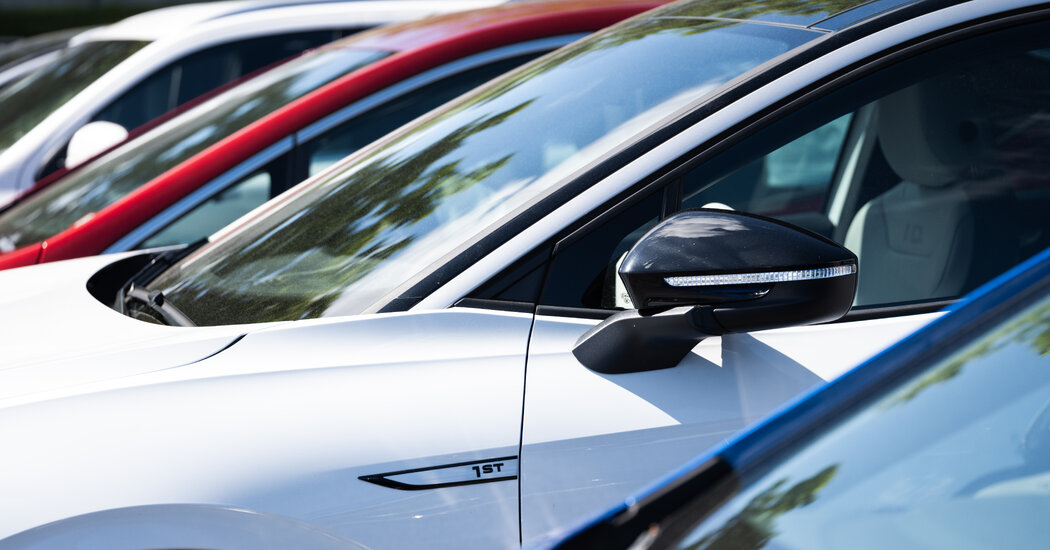Adam Tooze The Energy Giants Face Off Dr. Tooze is a professor of history at Columbia University. In the early 1910s, Winston Churchill ordered the conversion of Britain’s giant fleet of dreadnought battleships to oil fuel from coal. In so doing, the story goes, he ushered in the age of oil power. He also effectively anointed the United States — at the time the world’s largest producer of oil — as the 20th century’s natural hegemon. If global competition is inextricably interwoven with technology and energy, how states power themselves…
Tag: United States Politics and Government
A Free World Needs a Strong America
Opinion The Editorial Board By The Editorial BoardThe editorial board is a group of opinion journalists whose views are informed by expertise, research, debate and certain longstanding values. It is separate from the newsroom. NYT
To Outbuild China, America Needs Friends
Opinion The Editorial Board By The Editorial BoardThe editorial board is a group of opinion journalists whose views are informed by expertise, research, debate and certain longstanding values. It is separate from the newsroom. United States Allies and partners United States Allies and partners United States Allies and partners United States Allies and partners NYT
America Can’t Make What the Military Needs
In 2020 the Navy had a simple plan to build its next fleet of small warships, the Constellation class: take a European design and build it in America.In 2020 the Navy had asimple plan to build itsnext fleet of small warships,the Constellation class:buy a European design andbuild it in America. Opinion The Editorial Board make what the Military needs By The Editorial BoardThe editorial board is a group of opinion journalists whose views are informed by expertise, research, debate and certain longstanding values. It is separate from the newsroom. At…
Overmatched: Why the U.S. Military Must Reinvent Itself
Opinion The Editorial Board By The Editorial BoardThe editorial board is a group of opinion journalists whose views are informed by expertise, research, debate and certain longstanding values. It is separate from the newsroom. This is the first installment in a series from the editorial board on why the U.S. military needs to reinvent itself. NYT
Chinese Officers Questioned U.S. Government Employee About His Army Service
Chinese intelligence officers began tracking an employee of the U.S. Commerce Department this spring, when he was in southwest China and where he has family members, at one point interrogating him about his prior service in the U.S. military, according to a U.S. government document. The man, who is an American citizen, has been prevented from leaving China since mid-April, according to the document, a State Department cable that was obtained by The New York Times. The cable, from the U.S. Embassy in Beijing, was dated May 2 and sent…
There’s a Race to Power the Future. China Is Pulling Away.
ChinaSolar in Shanxi Province Gilles Sabrié for The New York Times U.S.Oil in California J. Emilio Flores for The New York Times Lithium-ion batteries China$65 bil.United States$3 bil.Asia$21 bil.Europe$26 bil.Africa$2 bil.Americas$17 bil.Oceania$1 bil. Solar panels and modules China$40 bil.United States$69 mil.Asia$11 bil.Europe$20 bil.Africa$2 bil.Americas$6 bil.Oceania$1 bil. Electric cars China$38 bil.United States$12 bil.Africa$281 mil.Oceania$3 bil.Europe$26 bil.Asia$14 bil.Americas$8 bil. Crude oil China$844 mil.United States$117 bil.Asia$50 bil.Americas$16 bil.Oceania$799 mil.Europe$52 bil.Africa$359 mil. Natural gas China$3 bil.United States$42 bil.Asia$13 bil.Europe$22 bil.Africa$3 mil.Americas$11 bil. Coal China$1 bil.United States$15 bil.Africa$718 mil.Americas$3 bil.Asia$8 bil.Europe$5 bil.Oceania$16 thou. ChinaElectric car…
Republican Bill to End E.V. Tax Credit Could Hurt G.M. and Ford
Sales of electric vehicles have been rising in recent years, partly because of a $7,500 tax credit from the federal government that helps lower the cost of buying one. But a budget bill that House Republicans released on Monday would end that tax credit. Their proposal would also put new restrictions on other tax breaks that have encouraged automakers to invest tens of billions of dollars in new battery plants in the United States. By next year, the bill would do away with the $7,500 tax credit for buyers of…
The C.E.O. of Detroit Axle Gave Trump’s Tariffs a Chance. Now He’s Nervous.
Mike Musheinesh gets about 75 percent of the auto parts his company sells from China. But even with plenty to lose in a trade war, Mr. Musheinesh gave President Trump the benefit of the doubt when he started increasing tariffs on the company’s most important trading partner. The president “needs to shake it up, and I’m actually paying for the shake-up,” Mr. Musheinesh said in mid-April. “But at the end,” he added, “I think it’s going to be much better off.” These days, he is less certain. The U.S.-China trade…
Trump Is Breaking the Rule That Every Barroom Brawler Knows
Provoking your enemies, alienating your friends and actively sabotaging your own defenses is no one’s idea of a sound national security plan. And yet, this is the playbook that President Trump has apparently followed over the first 100 days of his second term. You can see it most clearly in the global fight he kicked off with China. He’s been scrapping for this showdown since before he entered politics, so you’d think that before taking on such a global powerhouse, he’d strengthen every alliance, game out every possible countermeasure and…









